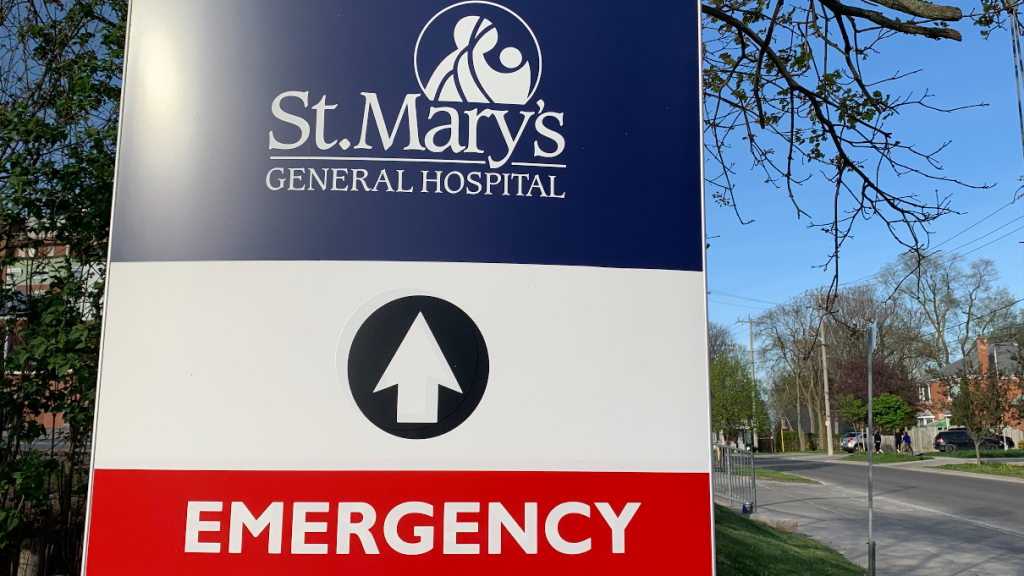Christmas Hamper program to support more than 5,000 households this year
Posted Dec 18, 2021 06:45:00 PM.
House of Friendship has been running their Christmas Hamper program since the 1950’s, providing low income households with holiday meals and toys during Christmas.
Typically they see around 4,500 to 4,700 families registering, and this year it was around 5,600 — the highest they have ever seen, suggesting the need for supports is stronger than ever.
House of Friendship’s Community Services Director, Clare Wagner, attributes this, in part, to the fact that many of the pandemic-related benefits people were relying on to stay afloat through the last holiday season wrapped up recently.
“And what we know from providing food supports year round is that folks who are trying to get by day to day, generally, once they pay for rent and basic necessities, they have negative income. They're the folks we always see needing this type of program.”
“But certainly we have more people in our community now who are under added stress,” she said, adding that the housing crisis is contributing to that.
“We're hearing from folks who, for whatever reason, have to leave an apartment, or find somewhere to live in this community. And there's no way they can afford to with the income that they have. And that's when they end up coming to us. So with rising housing costs, and the impacts of the pandemic on folks, we definitely see an increased need [for these supports].”
Throughout the pandemic, they have had to alter how they provide those supports, providing food via grocery store gift card and access to a frozen meat item, though Wagner says they try to offer as much choice as possible to recipients of the program.
“For example, this year for larger families, a lot of them want to have a whole turkey, and some folks are coming to us as individuals. And so maybe a small ham is exactly what they need … to help them enjoy the holidays.”
“No matter someone's faith or background, this time of year puts a lot of pressure on folks,” she said.
For instance, someone with children who relies on a program like Nutrition For Learning, when the child is home from school over the holidays, that support disappears.
“For folks who are living on a low income, [the holidays] can often be a really large stressor,” she said. “And when you don't have enough money to bring that turkey to the table, if that's meaningful to your family, or you don't have enough money to buy that treat that your children really love to have at the holidays, it can make you feel embarrassed, and it can be really really demoralizing for folks and cause them to disconnect. And that's what we really want to try to avoid.”
In Waterloo Region, one in 20 households accessed some kind of food assistance last year. Around one in eight struggle with poverty. Many of these people, Wagner says, never ask for help.
“We get those phone calls from someone who's like, oh, I don't think I need it badly enough. But we've gone a few days without a meal or, you know, my kids are eating but I'm not.”
She encourages those people to reach out. “It takes a lot of bravery, sometimes it takes putting your dignity aside,” but, she says, “you’re welcome here.”
However, Wagner stresses that Christmas is just one time of year, and the need doesn’t stop when the holiday drives are over.
“The need we're seeing right now is going to be reflected in the months ahead as well,” she said. “So to support people, there's going to be an effort of everyone, all levels of government, all different facets of the community. And at the end of the day, folks needing food is indicative of a lack of income. So whether that's not making enough through work, or needing support from social assistance.
“No one knocks on your door to force you to buy food, whereas they do for rent they do for utilities. And so individuals and families are often put in a really hard spot where food is kind of the first thing to fall off.”
She says they still need support for the Turkey Drive to help fund their Hamper Program, but they also want people to consider helping their neighbours and friends, and to talk to politicians in their communities “to understand how to help people make a living wage, or to have enough money to live day to day.”
“We have a few of our programs and many of our partners throughout the region we're serving thousands of families on a weekly basis who don't have enough income to keep food on the table.”
In regards to the Hamper program, they provide families with food supports over the holiday season, and connect families who need toys with the Salvation Army of Kitchener-Waterloo.
The turkey drive run by the Kitchener-Conestoga Rotary Club is a “crucial” contributor to this, helping them raise the majority of funds that are used for the Christmas Hamper program to support those thousands of families.
They rely on both staff and volunteers, with around 500 volunteers helping out this year. Wagner says she is energized by the amount of people who want to help those in their community, but that the ultimate goal is to live in a community where programs like this aren’t needed anymore.
“I want to work alongside all those people to say, how do we make it so no one is worried, come November, there's no one in our community wondering how they'll put food on the table on Christmas Day. That's what I want to see.”








